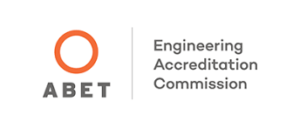
Program Description
Electrical engineering is a field of engineering that generally deals with the study and application of electricity, electronics, and electromagnetism. The fields of electrical and computer engineering cover a wide range of subfields including electronics, power engineering, telecommunications, control systems, radio-frequency engineering, signal processing, instrumentation, microelectronics, digital systems including hardware, software, compliers and operating systems, coding, cryptography, network, mobile and distributed computing system, and cyber-physical systems and security. As such, the BSEE program at Marshall University (MU) will prepare graduates with a BSEE with two areas of emphasis: general electrical engineering, and computer engineering. It will, also, emphasize service, systems-based knowledge, and sustainability with an eye toward the interface of traditional electrical and computer engineering with new and emerging fields.
Program Objectives
Within a few years of graduation Electrical and Computer Engineering graduates will:
- Obtain employment or an advanced educational opportunity in Electrical and Computer Engineering fields that utilizes their critical thinking and technical skills.
- Continue the development of their communication, collaboration, and technical skills, including an understanding of the expectations, standards, and responsibilities associated with their profession, and professional licensure.
- Practice and advance their profession for the benefit of society with attention to ethical, social, environmental, safety, and health considerations.>/li>
Student Outcomes
The student outcomes of the B.S.E.E. are:
- An ability to identify, formulate, and solve complex engineering problems by applying principles of engineering, science, and mathematics.
- An ability to apply engineering design to produce solutions that meet specified needs with consideration of public health, safety, and welfare, as well as global, cultural, social, environmental, and economic factors.
- An ability to communicate effectively with a range of audiences.
- An ability to recognize ethical and professional responsibilities in engineering situations and make informed judgments, which must consider the impact of engineering solutions in global, economic, environmental, and societal contexts.
- An ability to function effectively on a team whose members together provide leadership, create a collaborative and inclusive environment, establish goals, plan tasks, and meet objectives.
- An ability to develop and conduct appropriate experimentation, analyze and interpret data, and use engineering judgment to draw conclusions.
- An ability to acquire and apply new knowledge as needed, using appropriate learning strategies.
Admission Requirements
- Meet Marshall University admission requirements
- Admission to the B.S.E.E. program requires a minimum composite ACT score of 21 with a math score of 24, or a minimum SAT composite of 980 with a math SAT of 560.
- Transfer students must have completed MTH 127/130 College Algebra and MTH 132 Pre-Calculus.
Students not meeting the ACT/SAT score requirements above may enroll in Pre-Engineering. Requirements for Pre-Engineering are a minimum composite ACT score of 19 with a math score of 19-23, or a minimum SAT composite of 900 with a math SAT of 460-550. Students who are admitted to the Pre-Engineering program generally will require an additional calendar year to complete the requirements for the B.S.E.E. degree. Transfer students must be eligible to take MTH127/130 College Algebra and MTH132 Pre-Calculus.
Graduation Requirements
The B.S.E.E. degree program requires a minimum of 132 credit hours of coursework. In addition to fulfilling the university’s requirements for graduation, B.S.E.E. students must maintain a minimum GPA of 2.0 in all professional courses. These professional courses include mathematics (MTH 229 or above), required science courses, core engineering (ENGR) courses, electrical and computer engineering courses (EE), and courses used as technical electives. Entering students with a Math ACT of 24-26 are required to take MTH 132 Pre-Calculus. Such students will likely need an extra semester or summer term to satisfy B.S.E.E. requirements.
Curriculum
B.S. in Electrical Engineering – Curriculum
| Academic Year 2019-2020 |
Academic Year 2018-2019 |
Academic Year 2017-2018 |
Academic Year 2016-2017 |
Academic Year 2015-2016 |
|
|---|---|---|---|---|---|
| Annual Enrollment | 36 | 39 | 39 | 14 | 0 |
| Graduation Data | 16 | 10 | 0 | 0 | 0 |
Additional institutional enrollment and graduation data, including major-specific details, are available on the website of Marshall’s Office of Institutional Research (see the “Student Data Book” posted at: https://www.marshall.edu/irp/institutional-data/)
Co-operative Education
Students may elect to participate in the co-operative education program. Students in the program will have periodic full-time work experiences in their area of interest with participating companies. Information on the program can be obtained from the department chair or academic advisor.
 The Marshall University BSEE Program is accredited by the Engineering Accreditation Commission of ABET. http://www.abet.org.
The Marshall University BSEE Program is accredited by the Engineering Accreditation Commission of ABET. http://www.abet.org.
